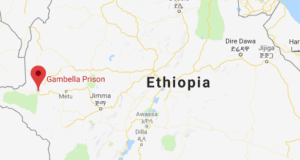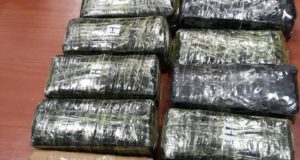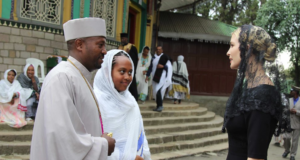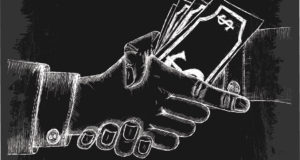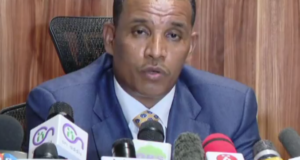by Engidu Woldie
ESAT News (July 12, 2018)
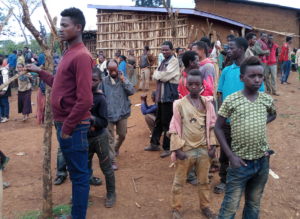
April 2018, People displaced by violence in Gedeo Zone, Ethiopia. Credit: Mesfin Andargie/OCHA
The Ethiopian government and its humanitarian partners call for $118 million dollars in assistance for the next six months to help people victimized by inter-communal violence in Southern Ethiopia.
An estimated 1 million people have been displaced and hundreds were killed as a result of ethnic violence between the Guji and Gedeo communities in Southern Ethiopia.
Responding to the call, the UN’s Central Emergency Response Fund (CERF) today released $15 million to urgently scale up humanitarian assistance to people affected by escalating inter-communal violence in Ethiopia.
“Under the leadership of Dr. Abiy Ahmed, new measures to bring unity and reconciliation have spurred great enthusiasm within the country and high international praise,” said UN Secretary-General António Guterres.
“However, the impact of inter-communal tensions presents a challenge for the new leadership. Nearly one million people are displaced and require urgent help, especially during this rainy season. It is critical to act immediately and that is why CERF is releasing $15 million to enable urgent aid. The fund is one of the fastest ways to ensure aid reaches those who need it the most and I thank all donors to CERF for making this possible.”
Over 300 people were killed in Guji Zone in Southern Ethiopia since the violence began in mid June. The violence between the Guji and Gedeo groups has also resulted in the destruction of schools, churches and private properties.
The Association of Gedeo Community in North America has documented the names of 137 ethnic Gedeos who were killed by the Gujis in West Guji Zone.
The report by the Association, sent to the office the Prime Minister, and copied to media outlets show that women were also gang-raped.
“The nature of the attack is horrifying,” the document said and added that “apart from firearms, machete and spears are used in the killings. Several ethnic Gedeos were beheaded, thrown into rivers or burnt in their locked houses.”
The 118 million dollars would be used for life-sustaining support for those affected by the violence, according to a statement by the United nations Office for the Coordination of Humanitarian Affairs.
 The Ethiopian Satellite Television and Radio (ESAT) No. 1 Ethiopian news media: Esat, Ethiopian news, daily Ethiopian news, ESAT tv, ESAT Radio, Ethiopia
The Ethiopian Satellite Television and Radio (ESAT) No. 1 Ethiopian news media: Esat, Ethiopian news, daily Ethiopian news, ESAT tv, ESAT Radio, Ethiopia
